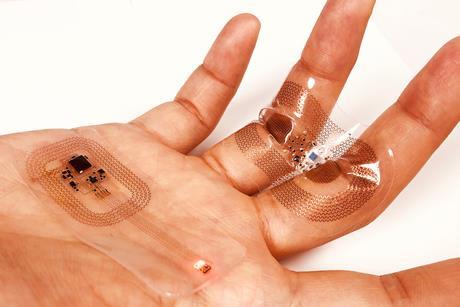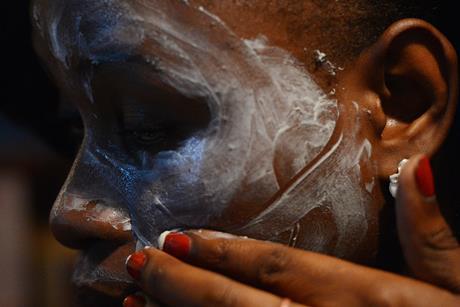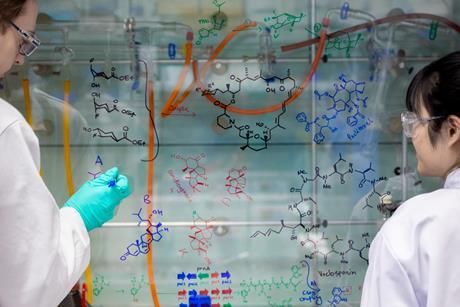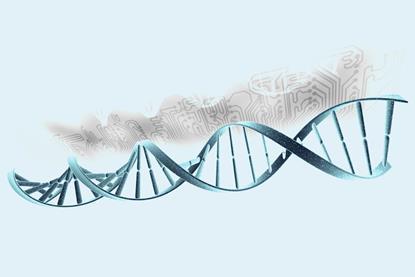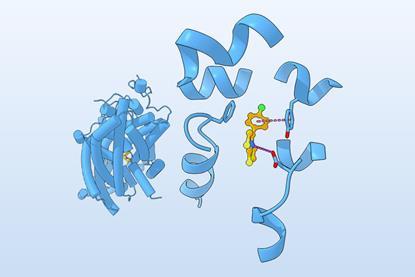Covid pandemic’s disruption of industrial activity drove surge in methane in early 2020s
Levels of methane-degrading radicals decreased as a knock-on effect of the pandemic
World first for clinical trial of skin patch to monitor therapeutic drugs in real time
Sensor could soon help doctors to prevent overdoses of drugs
Embodying polymer chemistry with a purpose by upcycling plastics and trapping PFAS
For Frank Leibfarth, focussing on reactivity and selectivity helps him bridge the gap between fundamental and applied research
Mapping tool delivers quantitative visualisations of steric interactions
Technique uncovers subtle interactions that previous methods have missed
‘Inverted metallocenes’ turn organometallic definition on its head
‘Living biosensor’ lights up to detect wine spoilage in real time
Amino acids weave organic molecules into chiral knots
Lithium-free battery breaks voltage barrier for ultra-cheap energy storage
Three nitrile molecules identified as fresh targets for life-hunting astronomers
Google’s AlphaGenome wants to do for DNA what AlphaFold did for proteins
Highlights
How RNA reveals clues to life’s origins on Earth
The discovery of catalytic RNA transformed our understanding of life’s beginnings. Clare Sansom explores how the RNA world hypothesis bridges the gap between non-living chemistry and the first cells
How soft electronics are transforming medical devices
Degradable pacemakers and artificial neurons showcase how flexible, tissue-compatible electronics are revolutionising medicine. But translating these materials from lab bench to clinic requires solving complex structure–function relationships
The toxic chemistry behind skin bleaching products
The global skin-lightening market is worth over $10 billion and growing, but the unregulated products driving it contain dangerous chemicals linked to serious health risks. Zahra Khan speaks to the scientists and advocates trying to fix the problem
The future of total synthesis
From structure confirmation to methodology improvements, making complex natural products has driven innovation in organic synthesis for decades. Nina Notman looks at its current state, with threats from funding to academic pressures
The JWST reveals the molecular origins of planetary systems
The world’s most expensive infrared spectrometer – the James Webb Space Telescope – is unearthing extraordinary exoplanet chemistry. James Mitchell Crow looks to the skies
Topics
Mapping tool delivers quantitative visualisations of steric interactions
Technique uncovers subtle interactions that previous methods have missed
Google’s AlphaGenome wants to do for DNA what AlphaFold did for proteins
Model predicts effect of mutations on sequences up to 1 million base pairs in length and is adept at tackling complex non-coding regions
AI tool dramatically reduces computing power needed to find protein-binding molecules
New protocol is up to 10 million times faster than current docking-based methods
Purer silicon lets robust quantum computing get started on a new medium
Anomeric effect cannot be explained by hyperconjugation alone
AI agents set to democratise computational chemistry
AI flexes its protein design muscles for harsh environments
Protein design takes big leap forward as model produces enzymes almost as effective as nature’s
Embodying polymer chemistry with a purpose by upcycling plastics and trapping PFAS
For Frank Leibfarth, focussing on reactivity and selectivity helps him bridge the gap between fundamental and applied research
Roman-era ink reveals surprising chemical complexity
2000-year-old residue indicates the Romans wrote with iron-gall inks hundreds of years earlier than expected
The chemist using curry to understand indoor air pollution
Ashish Kumar’s research reveals how cooking shapes the air we breathe indoors
Traditional yoghurt recipe reveals ants’ fermentation power
Rebecca Trager meets a cross-disciplinary team investigating an ancient way to make yoghurt, which involved a trip to a tiny Bulgarian village
Rethinking hydrogen peroxide production
Hydro-Oxy and Addible both aim to transform how industry produces and uses a ubiquitous oxidant.
Textiles in the age of sustainability: alternative methods for fabric dying and treatment
Learn about advances in sustainability of textile production – join us on 31 March
Global analysis identifies trends in platform chemical research
Ammonia and methanol lead shift towards greener technologies
US charity launches $100 million green chemistry initiative
Gordon and Betty Moore Foundation to fund seven year project headed by sustainable chemistry pioneer Paul Anastas
Pitfalls in cytotoxicity studies could be tripping up chemists
Team proposes how to broaden and standardise biological testing in sustainable chemical research
Light-driven catalytic system makes ammonia from nitrogen and water
Dual catalyst system operates under ambient conditions, offering a way to reduce ammonia production’s environmental impact
Opaque UK funding changes herald cuts to facilities and research programmes paused
Projects face withdrawals and delays as UKRI prioritises economic growth and applied research over curiosity-driven areas
Australia closes one beamline at national synchrotron, with another saved
Agency backtracks on closure of one beamline but asks user community to chip in
Brexit led to decline in UK participation in EU research programmes, report finds
Researchers decry difficulties joining international collaborations following 2016 referendum vote
AI research tools benefit individual scientists but may slow scientific progress
There may be a conflict between personal and collective gain in the sciences
US air strikes seriously damaged leading research institute in Venezuela
Venezuelan Institute for Scientific Research’s maths building ‘completely destroyed’ and chemistry building seriously damaged





